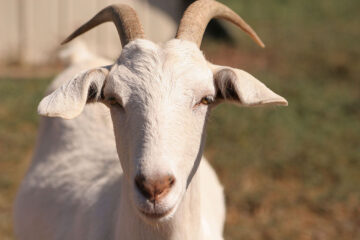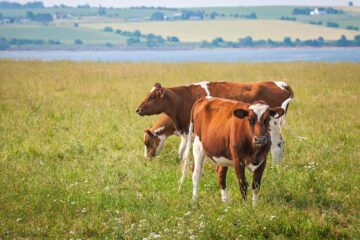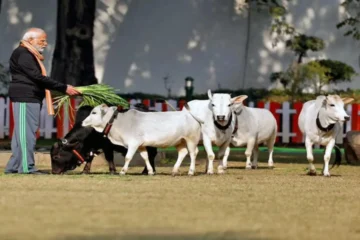Goat farming plays a crucial role in the rural economy and provides employment opportunities. Particularly in areas where agriculture is not feasible due to water scarcity or where natural fodder resources are limited, goat farming holds significant importance. Compared to cattle and buffalo, goats have a 2% higher growth rate. Although goats and sheep share similar digestive systems, their feeding habits and requirements differ.
Feeding Requirements
For goats, the amount of dry fodder needed for satiation is about 2.5-3% of their body weight, whereas for sheep, it is about 6-8% of their body weight. Generally, goats should obtain half of their feed requirements from mixed feed and the other half from green grass.
Goats graze over shorter distances compared to sheep and prefer small grasses over tree leaves, although they require more drinking water. Well-grown Indian goats average 30-40 kg, while foreign breeds can weigh up to 70 kg. The primary reason for the growth difference is the lack of nutrient-rich feed for goats.
Young Kids’ Nutrition
Young goat kids rely on their mother’s milk for the first three months but start eating grass from the third week. Providing proper nutrition to young kids is essential as their growth rate is higher than that of sheep.
Feed Mixture for Young Kids (per 100 kg):
- Maize: 60 kg
- Oilcake (groundnut/soybean): 20 kg
- Wheat bran: 12 kg
- Black gram split: 5 kg
- Mineral mix: 2 kg
- Salt: 1 kg
Feeding Schedule:
- For the first 8 weeks: 50-100 grams of concentrated feed and 0.5-1 kg of green fodder per day.
- After 8 weeks: 100-150 grams of concentrated feed and 1-1.5 kg of green fodder per day.
Mineral blocks should be provided in the pen for the kids to lick and satisfy their mineral needs.
Nutrition for Growing and Adult Goats
Feed Mixture for Growing and Adult Goats (per 100 kg):
- Maize/Pearl millet: 30-50 kg
- Oilcake (groundnut/soybean/cottonseed): 20-50 kg
- Bran (rice/wheat): 25-35 kg
- Mineral mix: 2 kg
- Salt: 1 kg
Feeding Schedule:
- Goats aged 6-12 months: 200-250 grams of concentrated feed and 4-5 kg of green fodder per day.
- Pregnant goats: 250-300 grams of concentrated feed and 4-5 kg of green fodder per day.
- Non-lactating goats: 150-200 grams of concentrated feed and 4-5 kg of green fodder per day.
- Lactating goats: 300-350 grams of concentrated feed and 4-5 kg of green fodder per day.
Flushing
Before mating, does should be given proper nutrition and attention to body condition. Supplementing does with 200-250 grams of mineral-rich mixed feed daily, 3-4 weeks before mating, improves conception rates and results in healthier offspring. This practice is known as flushing.
Importance of Minerals
Minerals are as crucial as energy and protein for growth, reproduction, and milk production in goats. Although the requirement for minerals is minimal, their deficiency can cause health issues. Excess minerals during gestation are stored in the goat’s body and used for milk production after kidding.
Preventing Nutritional Deficiencies
Energy and Protein Deficiency: Lack of energy and protein can lead to decreased appetite, poor growth, weight loss, reproductive issues, and susceptibility to parasitic infections.
Pregnancy Toxemia: This condition occurs due to an energy deficiency during pregnancy, resulting in symptoms like loss of appetite, head turning, and ultimately death.
Bloat: Feeding goats excess grains, protein-rich tree leaves, or vegetables can cause bloating due to the accumulation of gas in the stomach, leading to difficulty in breathing and potentially death. Therefore, feed grains in moderation and provide sun-dried tree leaves.
Proper feed management, including a balanced diet with necessary minerals and appropriate feed for different growth stages, is essential for the health and productivity of goats.
Dr. P. Murali, Dr. P. Silambarasan, Veterinary University Training and Research Centre, Cuddalore.










